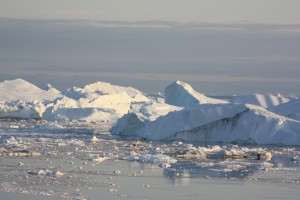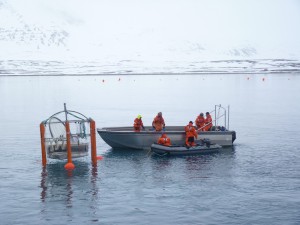Search Results for Tag: CO2
New climate model says 2° target not out of reach if….

The Hamburg scientists say there is a direct connection between the melting of the Arctic sea ice and global warming
Scientists from the Hamburg-based Max-Planck-Institute of Meteorology and the German Climate Computing Centre have calculated that the 2° limit for global warming could still be kept to. However, it would require immediate drastic reductions in carbon dioxide emissions. So what’s new? I hear you say. The new element is the model the scientists are using. The new model developed by the Max-Planck-Institute using the high-powered computer capacity of the Hamburg centre integrates additional factors into its simulations for the 21st century, including the complex carbon cycle and dynamic role of vegetation, and compares numerous climate models from around the world with each other.The simulations indicate that if the CO2 concentration continues to rise as it is doing, we will be facing not only a considerable rise in temperature, but also an increase in the speed of ocean acidification.
![]() read more
read more
Climate sceptics in the limelight – and under fire
I have been following with interest the coverage in the media here – and discussions amongst friends and neighbours – of a highly controversial book published in German this month: “The Cold Sun: Why the Climate Catastrophe is not taking place”. The authors, Fritz Vahrenholt and Sebastian Lüning talk down climate change and say there is no need for all the fuss. The authors suggest global temperatures are only influenced to a very small extent by CO2 emissions. They blame “more than half” on solar activity. Now this argument is not new and has been refuted by many respectable scientists – but the hype surrounding the book might lead a lot of people to think it is.
![]() read more
read more
Gulf stream heating up
Scientists have observed that the Gulf Steam has been heating up two to three times as fast as the rest of the Atlantic over the last 100 years. Professor Martin Visbeck from the Helmholtz Centre for Ocean Research in Kiel, Germany, says the Gulf Stream, which accounts for the relatively mild climate of north-western Europe, has become around 1.2°C warmer since 1900 compared with a 0.4 degree rise in the Atlantic as a whole. The trend is similar with other important streams off the coasts of Japan, Australia, Brazil and southern Africa.
The scientists say the enhanced warming could reduce the ability of the oceans to absorb carbon dioxide as warmer water absorbs less than cold water. They stress the need for more data and continuous measurement, but Visbeck says the results indicate that climate change is changing global ocean circulation. More in the journal Nature Climate Change.
Permafrost “tipping point” in less than 20 years?

I have been concerned about the effect of melting permafrost on the climate for quite some time, not least in the wake of encounters with scientists working in Greenland (this picture is Zackenberg, Greenland, 2009) and Alaska. Now research results published by the National Snow and Ice Data Centre (NSDIC) in Boulder, Colorado are indicating that there could be a “tipping point” or a “starting point”, as Professor Kevin Schaefer prefers to call it, in less than 20 years. That means a point when the vast areas of permafrost in Alaska, Canada, Siberia and parts of Europe go from being a “carbon sink” to a carbon source. The study indicates as much as two-thirds of the carbon frozen into the permafrost could be released.
There’s more info on the NSIDC website and on the ips news website, based on an interview with Prof. Schaefer. Not happy reading, but without big reductions in emissions, it will probably be impossible to prevent this. On top of that come the methane emissions, not included in the study. Methane is much more powerful than CO2 as a greenhouse gas.
Climate Change: Threat or Opportunity?
The interview I recorded with the Norwegian foreign minister is transcribed on Deutsche Welle’s Environment page. Have a read of his views on whether the opening of the Arctic to commercial exploitation is more of a threat or an opportunity.






















Feedback